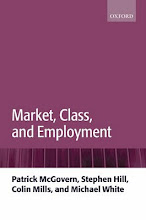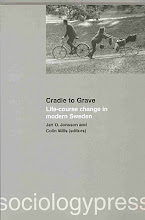I wasn't that much of a reader when I was young. I read the books I was given at school and a few of the Sunday school prizes I collected if they weren't too boring. I was not one of those children that had read the complete works of Dickens by the age of 12. Mostly I preferred to kick a ball about in the back entry with my mates. Learning to read in the sense of learning what to read was pretty much a hit and miss process. Two things helped me on my way. When I was 8 or 9 one of my friends, in an extraordinary act of generosity, gave me two old hardbacks of Enid Blyton's Famous Five stories. To this day I've no idea why he wanted to get rid of them: maybe they were stolen. They were a revelation. Here were stories that were exciting and made you want to turn the page!
My reading development must have been quite arrested because I was still enjoying the Famous Five in the last year of primary school. My own daughter liked them when she was 6 but now she is nearly 8 she finds them a bit passe. The other books I chose to read were the Jennings stories of Anthony Buckeridge, first Jennings' Little Hut, which was a Sunday school prize and then other volumes in the series which I received as Christmas and birthday presents. By the time I was 12 I had read them all. I recall one splendid occasion when I had spent a week off school ill in bed (do otherwise normally healthy children these days ever spend a week ill in bed?) when my father, trying to cheer me up, brought home two volumes that I hadn't yet read which he had picked up cheap in a W. H. Smith sale.
I was thinking of the Jennings stories the other day while re-reading Orwell's essay on Boy's Weeklies. I must have read that essay at least 3 or 4 times and it always reminds me that in its early phases the sociological study of popular culture was a breath of fresh air in a stuffy room rather than the academic joke it has subsequently become. Orwell was absolutely spot on in pointing out the snob appeal of the boarding school story. Nobody around our way went to prep school and all I knew about such places came from reading the Jennings stories. I was fascinated by them. It was a world completely different from mine. Yes, the boys were away from home, but they were never lonely and they were free from interfering adults. It was all ultimately very reassuring because whatever comic disaster was threatening it was always eventually avoided by the intervention of a benevolent aunt, the arrival of a 10 shilling postal order and the good sense of Mr Carter who understood the minds of small boys in a way that Mr Wilkins never could. The world seemed permanently stuck in 1950 and though the fixtures and fitting might seem a little primitive from the perspective of the 1970s, the sun always shone and after prep, if you were lucky, there might be a half-holiday and you could go down to the town and eat buns. This is how the solid middle class lived and how attractive it looked!
Buckeridge also wrote the Rex Milligan series about boys in a grammar school and their rivalry with the oiks from the secondary technical. I borrowed one of these from the local library but I never finished it. It simply didn't have the magic of the Jennings stories. Rex Milligan's world was too much like my own. There was no snob appeal. I didn't want to read about children recognizably like myself, I wanted to be taken to a different place. Shabby genteel as it was, I had no doubts that Linbury Court would have thrashed Sheldrake Grammar at cricket.









